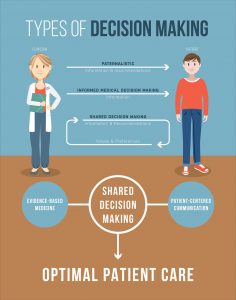The discovery of Reddit as an educational resource was an eye-opening learning experience for me. I did not stumble upon the site when looking to seek an educational community, neither did I intend to use it as an educational resource – I just saw it as a good aggregator of news for topics that I was interested in (sport, movies, music, etc.). The more I used it, the more I came across sections of the site that could actually serve educational purposes. There are all news subreddits, that are usually effective at educating on current events. One thing I like about it is that you can then read the comments section, where people will often provide additional context or information regarding the subject that the news article did not provide. One caveat to this is that since it is other people posting these comments, you cannot be sure that the information is 100% verified. However, due to the upvote system in place, pertinent information is usually rated highly by other users and can potentially be trusted, if they haven’t already posted a source with their comment which they commonly do. It isn’t just the news-related subreddits that provide education though – there are subreddits dedicated to specific sciences, nature, media, etc. I have had many memorable learning experiences through reddit, as it’s very easy to ‘rabbit hole’; you might stumble upon an interesting article or report through regular browsing of the site, but then as a result of the comments section, you can then go and research a facet of that subject that somebody else has provided, and then that easily leads into something else, and so on. It was an exciting realization when I learned that I could use reddit as an educational resource, rather than just a place to find pop-culture memes and related media, and every week I learn about topics that I would never have sought out on my own volition.
As reddit is not a platform built explicitly for the purpose of being learning environment, many of the concepts taught so far in this course do not directly apply; synchronicity, however, is relevant to this platform (as it is to any platform that facilitates communication). The site is primarily asynchronous – people post things, and people can then view them and/or reply. There is also synchronous elements to the site though. While not as prominent, there are typically ‘live feeds’ (more similar to an instant chat environment than a message board) during a major world event, so that people can deliver salient news items and sources as soon as they are posted online.
Openness is also a very significant concept with regards to sites like reddit. As it is a public forum, it is open to absolutely everyone, without the need to even create an account if you aren’t interested in posting anything yourself. This makes it an incredibly accessible learning environment that anyone can use, as long as they have an internet connection and a device to connect to the internet.
As I had stated before, my favourite thing about this platform is that I can go on to the front page of reddit (the main portal where the recent top posts from the entire site appear), see a post about a topic or event that I would never even have thought to look into myself, and then proceed to learn as much or as little as I would like to about it. For example, this appeared on the front page today (click the picture to visit the original post):

This comes from the ‘Awwducational’ subreddit, where people will post a cute picture of an animal, along with an interesting fact about it. On the top comment on the post, somebody then posted a fact pertaining to both pangolins and coronavirus (obviously a current hot topic), as well as a video for further information. From just casually browsing the site, I’ve learned something not only from the initial post but the subsequent comments, and had the opportunity to learn about something extremely interesting and something that I likely would not have encountered through a typical focused learning platform!
Upon reflecting on this realization, it made me think a lot about everything else that has been talked about during this course — the implications of resources like this on traditional education as we know it, as well as the transition to open education and self-motivated learning we are beginning to see as a result of educational technology. In school and education, it seems like the instructor is becoming less and less the ‘authoritative’ source of information that they once were, and it got me thinking of a similar scenario that’s happening in healthcare right now.
In the past, traditional education dictated that the teachers and instructors were pretty much an exclusive source of learning for a student, as that was the most easily available resource for them. This is now not the case, with a literal world of information being available to anyone with an internet connection from the comfort of their own homes. Instructors are now taking more of a backseat role, and guiding the student as opposed to being their exclusive source of information (Kop & Fournier, 2011). There is a similar transformation that’s happening in healthcare (also a result of the evolution of technology), and doctors are also no longer the authoritative and exclusive source of medical information that they once were. Widespread patient access to information is just one of many factors that have influenced this change in mindset (alongside the rise of evidence-based medicine and a desire to eliminate any cognitive biases that may affect a physician’s decision-making ability).
There are three types of decision-making models in medicine: paternalistic, informed, and shared. With the paternalistic and informed models, the information flow only goes one way, from doctor to patient. The way they vary from each other is in who’s making the decision – in paternalistic, the doctor not only gives the information, but also makes the decision for the patient. This results in little to no patient autonomy, and is similar to the teacher-student relationship in traditional education. In informed decision making, the information is still just flowing from doctor to patient, but in this situation, the patient is the one making the decision. This results in perhaps too much patient autonomy. The third model is shared decision making, which is what seems to be emerging as the ideal patient-doctor relationship type. In this scenario, information flows both ways. The doctor gives the patient ample time to talk about their symptoms and how they are feeling about them, on top of allowing the patient to do their own research on the topic to talk about with them. When the patient is satisfied with everything they have told the doctor, the doctor then has time to formulate a diagnosis and talk to the patient about potential options for treatment, in which the patient is still allowed to have input on what will lead to the final decision that they make together.

It’s interesting to see that the emergence of the shared decision making model in healthcare seems to be similar situation to what is happening in education with regards to open learning, and it’s also interesting that the factors influencing it are similar as well. Technology and the new tools it enables, as well as the widespread availability of verified and trusted information, are changing the roles of the once authoritative figures who held all the decision making power, to a role which is more of a guide for their patient/student than someone who dictates every aspect of the interaction. Learners now have many resources at their fingertips, and it seems the trend now is to have the instructor teach the student how to learn from them, as opposed to just teaching a pre-set curriculum of their choice. This results in a lot more autonomy for the student, just as the shared decision-making model in healthcare results in more autonomy for the patient.
If you are interested in other technological factors that are changing the way primary care is delivered, here are some additional resources.
Evidence-based medicine and rational decision making
Effect of Clinical Decision Support Systems on Physician Performance
References
Kop, R. & Fournier, H. (2011). New dimensions to self-directed learning in an open networked learning environment. International Journal of Self-Directed Learning. 7. Retrieved from https://www.researchgate.net/publication/285750999_New_dimensions_to_self-directed_learning_in_an_open_networked_learning_environment